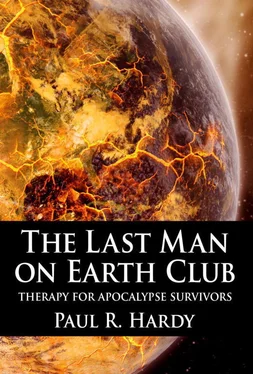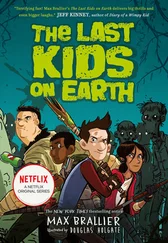* * *
I’d only moved into my office a couple of weeks previously, but I think I’d done well in making the place comfortable: calming backgrounds, a painting with gentle colours, an abundance of greenery and a pleasant smell of flowers and coffee. Two comfortable chairs faced each other across a small table, and one wall was set to transparent so it windowed out onto the forest beyond the centre.
Kwame sat in one of the comfortable chairs. He didn’t have the energy to appreciate the room — he hadn’t slept and there was strong coffee in the non-spill cup he clutched with both hands — but the transparent wall drew his attention.
“Is that a live image?” he asked.
“Yes. That’s what’s outside right now,” I replied. My office was on the second floor, allowing us to see over the nearest treetops. Beyond them the valley sloped away and the forest canopy spread out into the plains and around the lakes. Patches of sunlight and shade floated across the landscape, and blue mountains met the sky in the far distance.
“How far does the forest reach?”
“All the way across the continent.”
“And you might never see another human face…”
“There are people out there.”
“But no natives.”
“No.”
“An empty world…” He gazed out into the forest. “You never realise in Hub Metro.”
“A little peace and quiet can be good for you.”
“Can it?”
“I hope so,” I said. “Shall we get started?”
“Please.”
“I believe there’s something you want to say first.”
“Yes.” He sucked on the cup’s valve, and grimaced as coffee flooded through him. “I would like to formally request that I be prosecuted for the genocide of approximately four billion people on my world. I am willing to make a full confession, and in fact I have already done so several times.”
“Well, there’s not much I can do about that myself. But I’ve made sure your legal counsel has clearance to talk to you once a week to update you on the case.”
“Is anything likely to change?”
“Kwame, I’m not a police officer, I’m not a prison guard, and I’m certainly not a lawyer. I’m a therapist. I’m here to help you get better.”
“Why?”
“I know you’re still suffering. I think I might be able to help.”
“That is not what I mean. What I mean is… why is it necessary to stop my suffering?”
“It isn’t,” I said. “If you really want to suffer, you can carry on as long as you like. You’ve certainly been making the attempt.”
That took him aback. He wasn’t used to such directness. “I… did not mean that…”
“Yes, Kwame. You did mean that. You’ve consistently refused help, and chosen to pursue a legal course that you know will last years. But even if you manage to get yourself convicted, what would change? We deport most serious criminals back to their home universe. We can’t do that to you because it would be a death sentence. So you’d only end up in prison, and there are plenty of therapists there. Really, all that would change would be the view from the window.”
He looked outside for a moment.
“It is not… the legal process is not about me. I am not trying to punish myself. Four billion people deserve justice.”
“What would happen to you if you were convicted of that kind of crime on your world?”
He smiled without pleasure. “I doubt I would be convicted. They would probably put up a statue instead. Most of the statues in Zimbabwe City were of men who slaughtered thousands in the colonies.”
“But assume for a moment that politics didn’t get in the way.”
“Then I would be executed, of course.”
“Which we would never do.”
“You are more civilised.”
“So by the standards of your world, justice will not be done.”
“No. It will not.” He agreed far too easily; he’d already thought it through, and had an answer.
“So why is it necessary?”
“It is necessary because genocide still happens. Every universe should know the price for such crimes. It should not be a statue in the public square and judgement that comes a century too late.”
“And do you think your conviction would change this?”
“It might.”
“But does it have to be you?”
“There is no-one else.”
He held his opinions with a profound moral certainty, and I doubted he would be shifted easily. But perhaps I could address more immediate issues. “Moving on for a moment, I’d like to talk about your nightmares.”
“If you must.”
“Can you tell me what you see in your dreams?”
“I see my wife. Dying.”
“I’m sorry if this is painful, but I have to ask. How did she die?”
“Unpleasantly.”
“I mean, what do you remember about how she died?”
“Nothing.”
“Why is that?”
“I expect it may have something to do with my condition,” he said, tapping the side of his head.
“But you remember everything when you dream?”
“Every detail. She died of radiation poisoning. Do you know how terrible that is?”
“Yes. I do. I’ve seen it.” I remembered triage duty on the Lift down from orbit, when we evacuated the last few survivors from a world where tactical nuclear weapons had been used in warfare for more than a century. We saw cancers, birth defects, malnutrition from digestive systems mangled by radiation, and worse. Some who’d stayed in the open too long while waiting to be rescued died before we reached Hub. I took a sip of tea to drive the memory away.
“Then you understand,” said Kwame.
“I understand it’s painful to think about. But — and excuse me if this seems like an obvious question — I thought you said you didn’t remember how she died?”
“I do not remember the event. I remember discussing it later, in the bunker.”
“What do you remember from that?”
He sighed. He’d told this story too many times.
“She was on a train in Zimbabwe when the bomb went off. She should have been far away, but we had the oldest railways in the world and they never ran on time. If they had… if the trains had been Dzikanyikan or Chifunyikan… well. They were not. They were Mutapan. So the train was still in the blast zone. They took a lethal dose of radiation. They were lucky to get as far as a hospital. I was out of the country, on an official visit to Chiwikuru. When I returned, I stayed with them until the end.
“My younger son died on the third day. My wife on the fifth. My daughter on the sixth. My elder son on the tenth. I remember none of it, except at night. You know all this already. Why do you need to ask?”
I asked because at no point during this explanation did he suffer a flashback, and his records confirmed that he never did when he told this story. PTSD had been diagnosed in his case from nightmares, hypervigilance and social withdrawal. He should have found it difficult to discuss the source of the trauma. He should have been overwhelmed with memories he could not control. So either his brain damage had complicated the PTSD to the point where it only affected him at night, or something else was going undiagnosed; and I had an plan for how we could find out.
“What if we could show you your dreams?”
His eyes went wide. “I thought that was impossible.”
“Well, yes—”
“If you understood how my brain worked, I would not need to use this thing.” He held up the non-spill cup in his crippled hands.
“You’re right. We don’t have a full understanding of your species. But we do know a few things. We can read the neural impulses inside your mind. We know where your visual cortex is. The quality may not be very good, but we might be able to record some images from your dreams.”
Читать дальше












